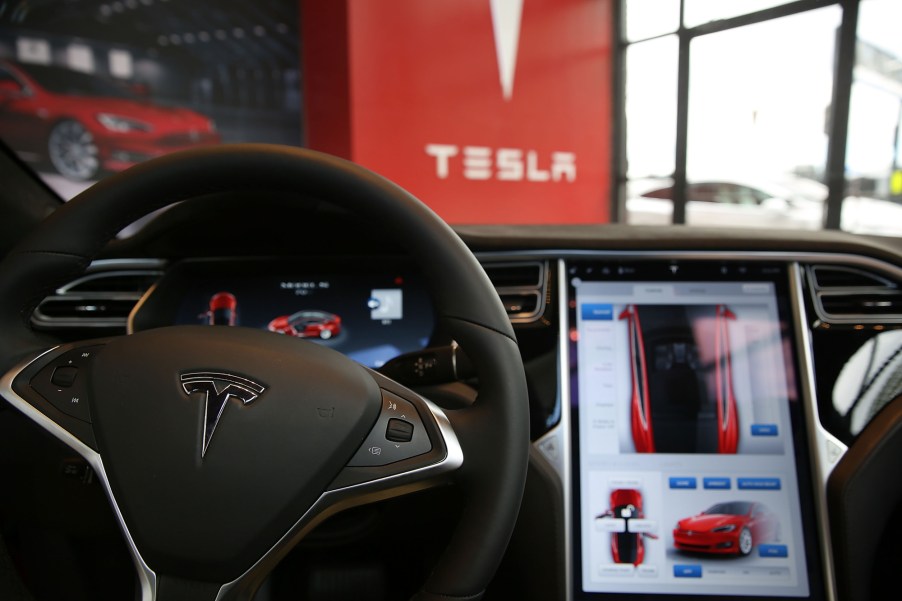
Drivers Without Tesla Autopilot Were Nine Times More Accident Prone in 2020
The Tesla 2020 Impact Report was 94 pages of information about how the company operated last year. Some of the more exciting sections included the Tesla Autopilot statistics and information about car safety. Tesla discussed both active and passive safety measures on the popular electric vehicle.
Discussion of Tesla Autopilot in the Tesla 2020 Impact Report

The 2020 Tesla Impact Report offers a lot of insight into how the company and vehicles performed. Tesla discusses some of the active safety features included. These features are Automatic Emergency Braking and Lane Departure Warning. The EV company also included Forward Collision Warning, Side Collision Warning, Obstacle-Aware Acceleration, and Blind Spot Warning. Over-the-air updates keep these features up-to-date.
Tesla commented that improved occupant safety was a vital part of the company mission in the passive safety section. Safety was the priority during research and development. This included a low center of gravity due to the battery and enhanced frontal impact safety.
The Tesla Model 3 and Model received five-star scores from the National Highway Traffic Safety Administration (NHTSA) in every category and subcategory.
Tesla Autopilot vs. vehicles without Tesla Autopilot engaged

Tesla collected the number of miles vehicles with Autopilot active or in manual driving mode. Tesla received data from the car at the moment of impact when a crash occurs. “To ensure our statistics are conservative, we count any crash in which drivers deactivated autopilot within five seconds before a crash, and we count all crashes in which the crash alert indicated an airbag or other active restraint deployed.”
That applies to crashes at 12 mph or faster. There is no differentiation based on the type of crash or the fault of the impact. Approximately 35% of recorded Autopilot crashes occurred when another car rear-ended the vehicle.
In 2020, vehicles with Tesla Autopilot engaged in the U.S. reported 0.2 accidents per million miles. The U.S. average was nine times higher at 2.0 accidents per million miles driven. The average was four and a half times lower in situations where Autopilot wasn’t engaged, but active safety features were.
Tesla is working to enhance vehicle safety
While Tesla makes the news occasionally for an unorthodox crash, it seems that vehicles with Tesla Autopilot engaged are safer on the roads. The Tesla Model X, Model 3, and Model Y all received high scores in various categories. The Tesla Model 3 received a Top Safety Pick+ Award from the Insurance Institute for Highway Safety (IIHS) in 2020. The IIHS did not rate the Model Y and Model X.
The Tesla 2020 Impact Report has a lot of interesting information in it. Though the document is long, it is worth glancing over to understand better what Tesla has been up to behind the scenes. While Tesla Autopilot isn’t perfect and Full Self-Driving has a long way to go, the data is fascinating. Are Tesla electric vehicles safer with Tesla Autopilot active? The data suggests that is the case.



